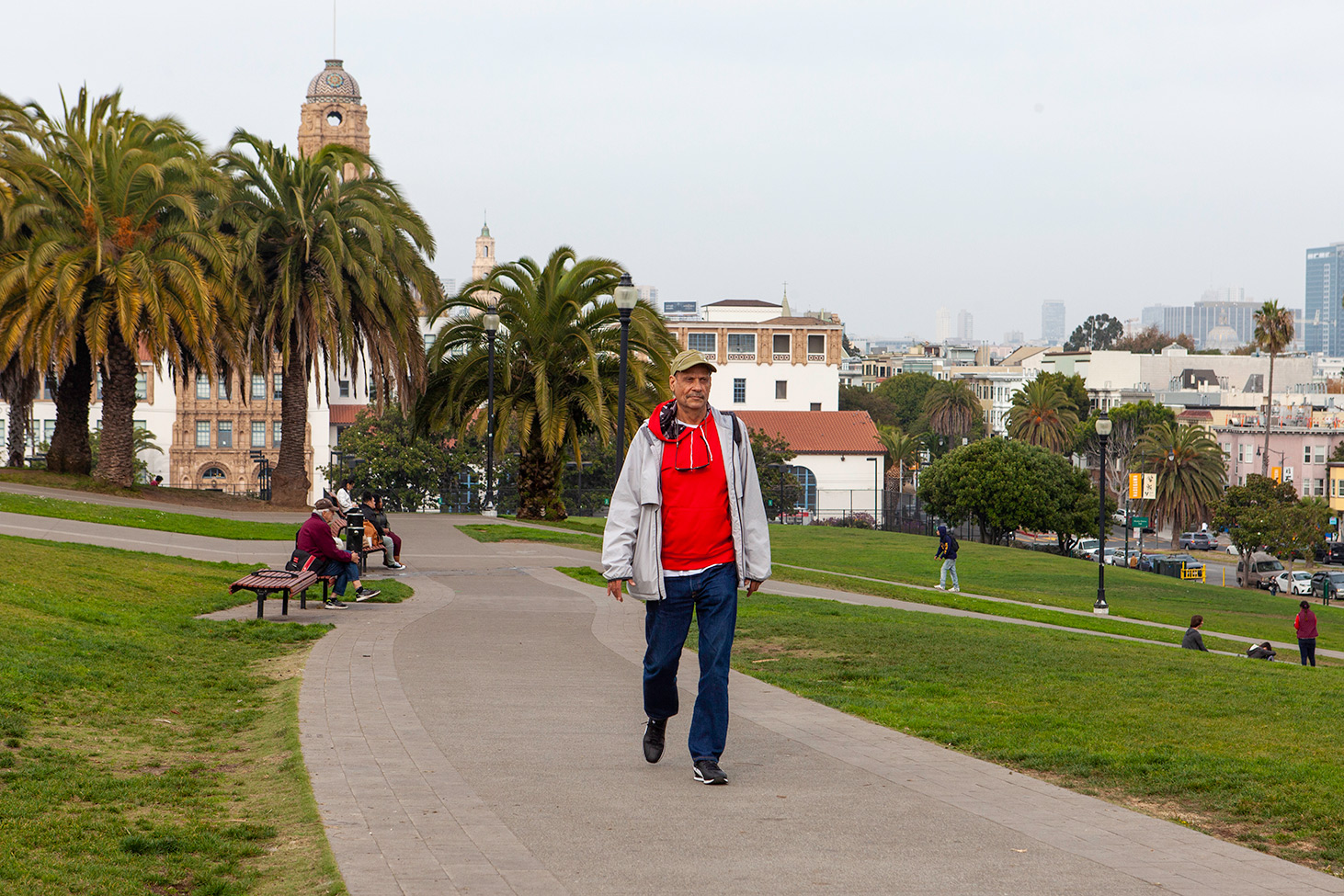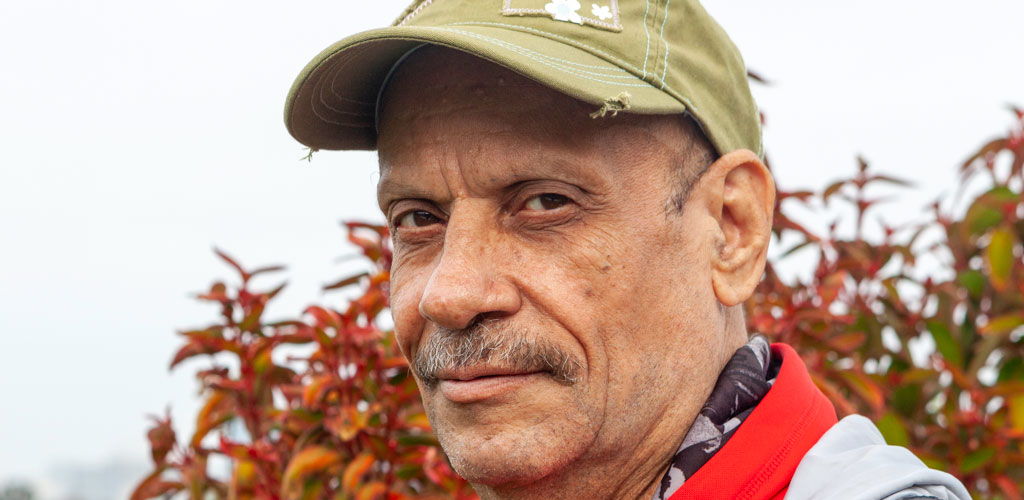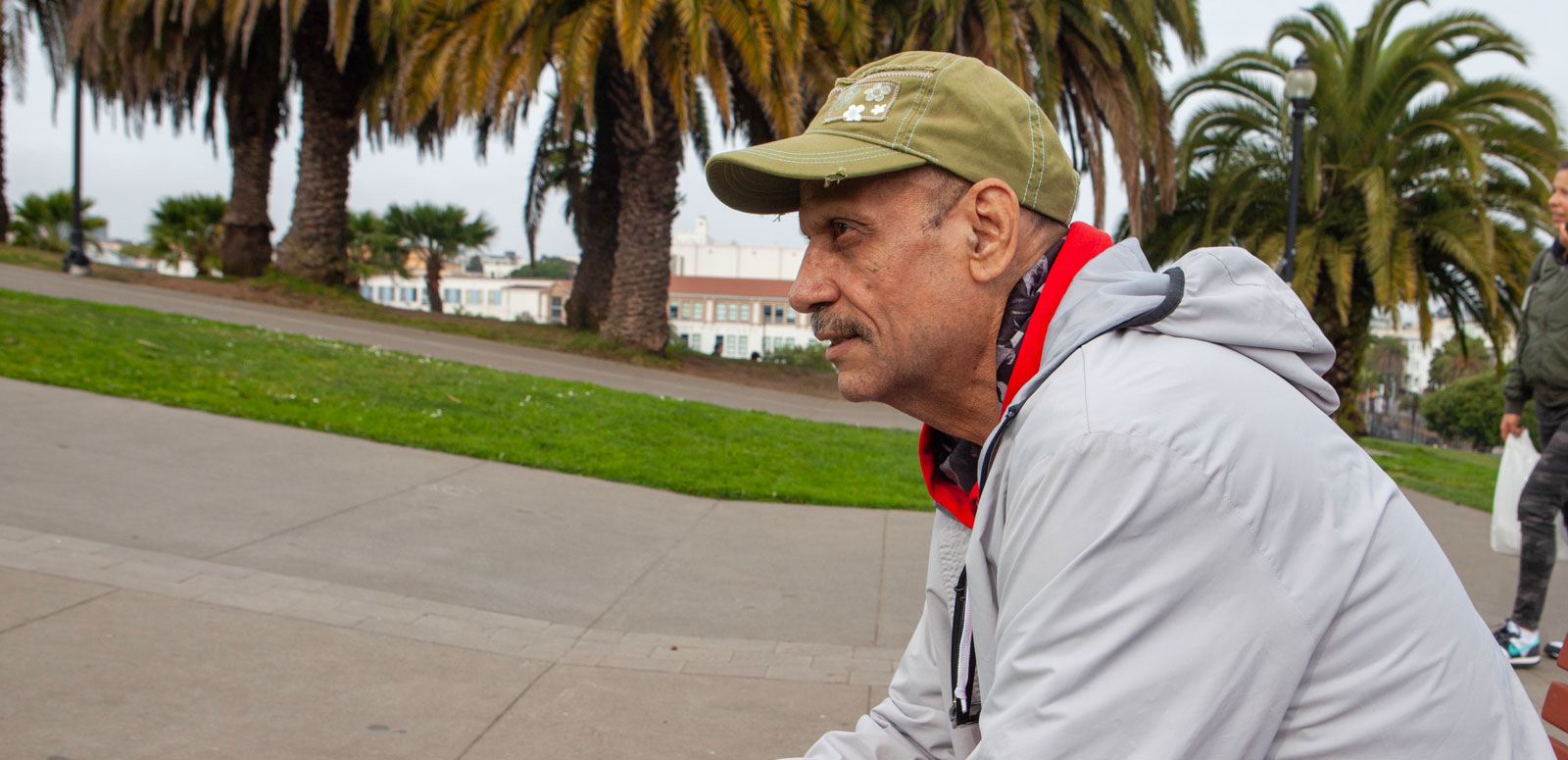“I didn’t think there was hope for me and I didn’t think I would live to see 63.”
Today, on November 13, Sergio Flores has just turned 63.
“I didn’t think there was hope for me and I didn’t think I would live to see 63,” he shares. “When I was diagnosed with HIV in 1986 they were telling people you might as well ‘go home, take care of your affairs, and die.” Grim times, we conclude.
Sergio spent his childhood “among the orange groves” of Ventura, California, and became a Hollywood costume designer after studying Studio Art at UC Santa Barbara. What felt like a prosperous decade, in fact, turned into a nightmare, after the first wave of HIV/AIDS hit his community hard. During the mid-80s, he began losing loved ones and became depressed.
“A lot of my friends were very young, and I became very depressed. Everyone was dying, right and left,” he recalls, “It was like our Vietnam.”
“I feel optimistic about HIV research because I never thought I’d be at this point – I always thought it’d be one of these diseases like cancer.”

In 1992, after researching extensively about the disease, he decided to move to San Francisco in order to work with the best research doctors in the field.
“I thought I’d give up my life to research and to try and help the next generation, because I didn’t want them to go through what I went through – because it was horrific,” he remembers.
After settling in San Francisco and enrolling in every clinical study the doctors would allow, he began seeing results with his own diagnosis and health status. The doctors told him he was a “rare case” in that he was a “slow progressor,” meaning that he had a strong immune response to HIV and was responding well to their clinical trials. Since the 90s, Sergio has been on or directly involved with various iterations of the HIV/AIDS medications that the medical sector has tried and released.
Sergio says he’s “met all the brainy smart doctors and they are incredible…right now I’m still involved with research and involved with the doctors on step-by-step research” for living with HIV.
Continuing, Sergio says “I feel optimistic about HIV research because I never thought I’d be at this point – I always thought it’d be one of these diseases like cancer – but we have made headway! In my life – I’ve seen it! I was part of the first generation of people with HIV/AIDS that was able to construct a lifeboat and we put people in the lifeboat – a lot of my other friends never made it to that lifeboat…”
It has been a challenge, and he has had to seek emotional and medical support over the last 33 years in order to be where he is today. A couple of years ago, he found himself newly “alone and depressed” after family members and more close friends passed.
“I would just take my meds and stay in the house,” he says.
“Today I’m thinking “OMG!” The possibilities of getting to 73 are really there!”

A friend took note and connected him to the Shanti Project in San Francisco, where he joined The LGBTQ Aging & Abilities Support Network (LAASN), which was “created in 2016 to respond to the growing population of LGBTQ seniors and a greater demand for support services.”
There, he was matched with a younger volunteer – who is now a therapist – with whom he could spend time, converse, and connect. This emotional exchange and support network offered by Shanti opened up his world.
“I started to come out of my shell and began to meet people who, like me, were going through it – I wasn’t the only one. I love the connection between young and old at Shanti,” he says. “These programs [at Shanti] are so important,” he says. “I never knew just how important until I needed their help. I didn’t even know they existed – I didn’t know what they did or how they connected to me until it was time to, basically, ask for help. They are so important for our community – we really need them.”
Beyond emotional support, Sergio has noted the changes of getting older in a city like San Francisco.
“I’m an active person, so I always go for that challenge – no hill is going to stop me; nothing’s going to stop me. I am going to get to the top of that hill!”
“San Francisco is very hard to navigate alone,” he admits. “It’s even harder if you had a partner or family [because being] alone after having all this great loss is extremely difficult. I can see why people give up on life…they don’t know there is help out there and that others are going through this same things, they think they’re the only ones but they are not alone…I’m so grateful they [Shanti’s programs] are here in San Francisco because it is hard!”
Not to mention the actual hills of San Francisco, its general terrain, and the changing demographic landscape, of course. To the multitude of challenges San Francisco presents Sergio says “I’m an active person, so I always go for that challenge – no hill is going to stop me; nothing’s going to stop me. I am going to get to the top of that hill!”
“Today I’m thinking “OMG!” The possibilities of getting to 73 are really there! We are always changing, always metamorphosizing…I still feel like I’m 30, but when I look in the mirror I’m getting older.” The good news is “you never stop learning, you always start discovering new things you didn’t think you could enjoy.”
Here’s to many more happy birthdays, Sergio!
All photos courtesy of: Sahara Marina Borja
